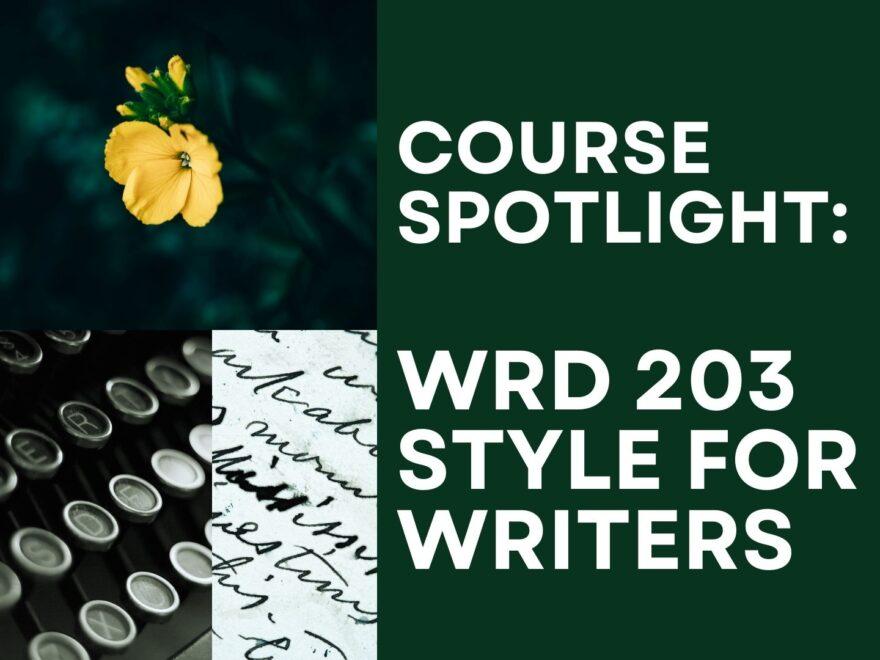This Spring Quarter 2025, Dr. Julie Bokser is teaching WRD 203 Style for Writers, a core major class that helps students develop their ability to think and write effectively in a variety of genres. Read on to learn more about what this class entails and see why you should be excited to enroll this Spring Quarter!
Course Goals and Learning Outcomes
Dr. Bokser’s main goal for the course is to get students to think more deeply about language. By looking at the details of language use, like how sentences are structured, students can expect to learn how to make their writing more sophisticated and clear. Dr. Bokser shared that by increasing their understanding of what language resources are available, students can be more precise and see how small changes can have large effects. Students won’t be memorizing grammar rules, but rather will learn when strategies are effective and what options they have to make their works even better.
Students’ ability to analyze what a sentence is saying and figure out why the author wrote it that way is crucial to their development as writers. By examining the works of other writers, students can think about where they need to put more attention in their own writing. Dr. Bokser explained that by blending advocacy with diction, style, and purpose, WRD 203 Style for Writers “nicely brings together what we do in WRD” and “gives students the opportunity to play with their prose.”
One way students begin to think more deeply about writing is through in-class workshops, where they split into small groups to share work with their peers. Giving and receiving feedback on drafts in progress, students think about what is effective and apply the course readings to their texts. By sharing their works, students begin to feel less like they are writing in a vacuum and start to see the ways that purpose, context, and audience intertwine.
Course Structure and Major Assignments
Dr. Bokser takes students on a journey through genres while encouraging students to consider how they can make each genre meaningful to themselves. She shared that she structures the course in such a way that “lets students take ownership, while working in parameters that push them.” Students start by writing a movie review, then a public document (like a manifesto or an open letter), a speech, and finally a descriptive essay.
The descriptive essay functions as the final showcase of the rhetorical skills students learn over the quarter. As likely their most familiar genre, students use what they have learned across the class to think expansively, creatively, and sophisticatedly about what is achievable.
With each genre, students are invited to first view and analyze sample pieces that exemplify strong works. This gets students thinking about how and why certain rhetorical moves in the pieces were or were not effective. To keep things fresh and relevant, Dr. Bokser frequently chooses new samples that fit into the current moment. While the textbooks remain constant across iterations of the class to ground students with foundational knowledge, the current samples keep students feeling connected.
Takeaways
As a core WRD major class, WRD 203 Style for Writers is an interesting and exciting opportunity to play with language to achieve specific results. The course serves as a chance to have fun with writing, as it opens up conceptions of what style is—not flowery language, but writing effectively for specific contexts.
Interested in learning about style? Add WRD 203 Style for Writers to your course cart and prepare to enroll. To learn more about other course offerings, visit Course Spotlights here on the WRD Blog.
